The Upper Danube. Part 14
Description
This section is from the book "The Upper Danube - John L. Stoddard's Lectures", by John L. Stoddard. Also available from Amazon: John L. Stoddard's Lectures 13 Volume Set.
The Upper Danube. Part 14
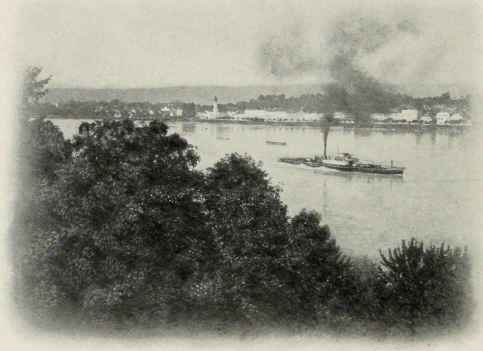
Aschach.
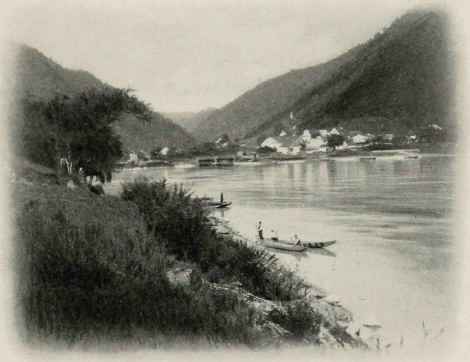
The Flood Of The Nibelungen Song.
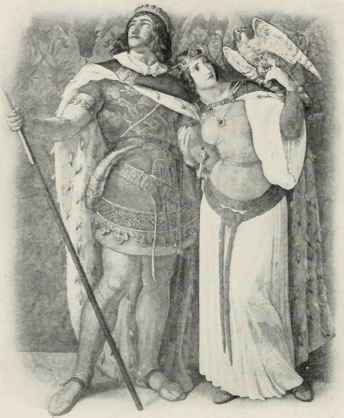
Siegfried And Krimhii.DE.
At Passau, Efferding, and Enns she found still other resting-places. Near Pochlarn, too, a splendid banquet was given her and her suite in Rudiger's imposing castle of Weiteneck, whose ruins still surmount the stream. Having become the wife of Attila, Krim-hilde begs her brother Giin-ther and his court to visit her in Hungary. Despite some grave misgivings on the part of Hagan, they accept her invitation, sail down the Danube, and finally give the queen the opportunity so long desired. A fearful struggle takes place in Krim-hilde's palace. Rudiger, than whom "a braver soldier never in this world was born," at first refuses to engage in it; but when Krimhilde bids him recollect his oath of fealty, and summons him to fight for her, he draws his sword. At last, however, he, as well as all the strangers from the Rhine, are slain. The queen herself kills Hagan with the sword of Siegfried. Yet only for a moment is she able to enjoy her vengeance; for she, too, is cut down by one of Gunther's followers, and thus in fearful tragedy and well-nigh universal slaughter the great epic ends.
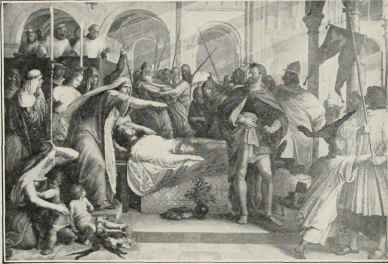
Krimhilde Declares Hagan To Be The Murderer.
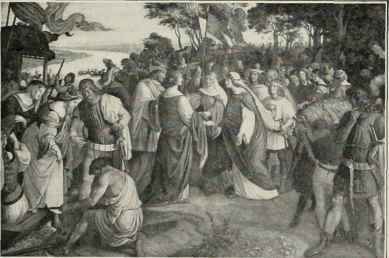
Krimhilde's Arrival In The Country Of The Danube.
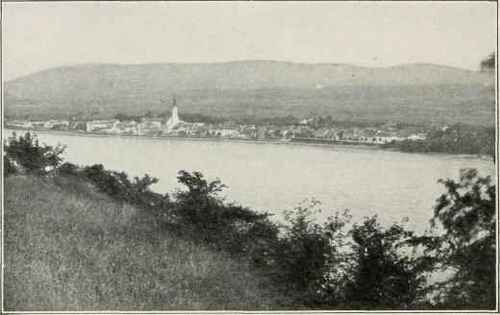
Pochlarn, The City Of Rudiger.
Such is the briefest outline of this German Iliad. A certain historical basis can be claimed for it, since Attila, in 437, actually did defeat the king of the Burgundians, whose capital was Worms, and even effected his destruction. The visit of Krimhilde to the Danube was perhaps suggested by the fact that Attila died mysteriously on his marriage night, having been probably murdered by his bride, a young Burgundian, whose relatives had perished at his hand. The date of the composition of the Nibelungenlied is pretty definitely fixed as the latter part of the twelfth century, but of its author we know nothing. Like the Homeric poems, it is thought by some to be a compilation, by a clever bard, of many older lays. Others, however, claim-apparently with justice - that the artistic unity of the work precludes the theory of mere compilation, and that one unknown master-mind designed its thousands of dramatic lines. Twenty-eight manuscript copies of the Nibelungen Song are in existence, ascribed to various dates between the thirteenth and the sixteenth centuries. Ten are complete. Eighteen are fragmentary. What is especially noteworthy in connection with the poem is the extraordinary manner of its renaissance after some centuries of oblivion. Some portions of it were revived and published in 1757, but they excited little attention, till there rose the grand incentive to Germanic unity inspired by the nation's struggles with Napoleon. Then everything Teutonic once more claimed preeminence; and in the year that saw the downfall of the emperor at Waterloo, this mediaeval epic was actually given to the German soldiers, to take with them on the march, and read beside their campfires! What a triumphant proof of the enormous power of carefully directed sentiment! What a conclusive argument for the influence of the ideal!
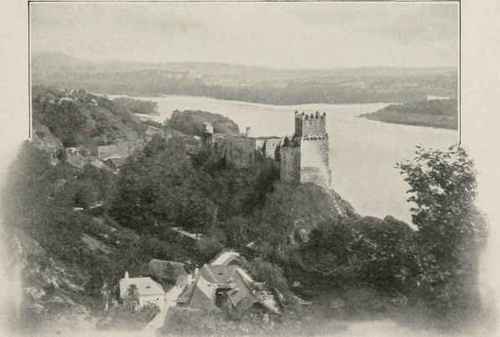
Rudiger's Casle Of Weiteneck.
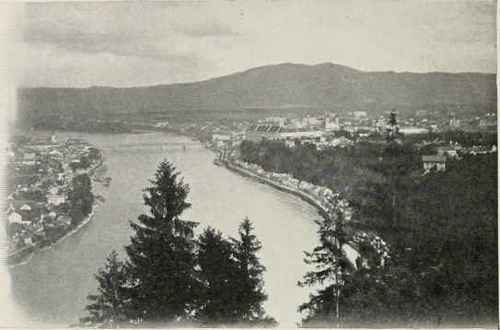
Linz And Urfahr.
Four hours after leaving Passau, our steamer, lowering its funnel, slipped beneath a handsome bridge a thousand feet in length. At the extremities of this imposing structure two cities lay, confronting one another in the evening light, - Linz on the right, and Urfahr on the left. For one brief moment it seemed doubtful which was to be chosen for our landing. Then suddenly the prow swerved southward, and with slackening speed our boat came deftly to the pier of Linz. Somewhere a clock was striking seven. The sun was sinking toward the Styrian Alps, whose crests were softened in the golden distance by a purple bloom. Northward, a faint star trembled over the gigantic Bohmer Wald, through which, diverging from the river, I was soon to travel to Bohemia. My journey on the Upper Danube neared its close.
Continue to:


